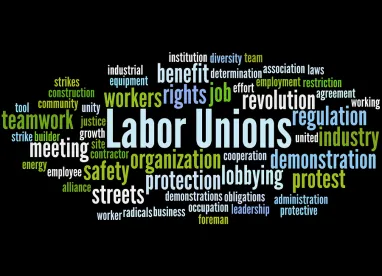1. The National Labor Relations Board (NLRB) General Counsel’s Division of Advice has found an employer did not violate the National Labor Relations Act (NLRA) when it fired an employee based on the mistaken belief that she divulged confidential wage information. Centura, 27-CA-234214 (Adv. Mem. June 24, 2019, released July 16, 2019). As the employee was applying for higher-paid positions with the employer, the employer received an anonymous tip that the employee disclosed to a colleague employee salaries information she obtained in her HR role. After the employer had fired the employee for the unauthorized disclosure, it emerged that the employee did not make the alleged disclosure. She had only asked the colleague to keep her apprised of new openings and interview dates. The employee filed an unfair labor practice charge alleging her termination was an unlawful response to her discussion with the colleague. The Division of Advice found the NLRA did not protect the employee’s discussion with the colleague, because the discussion did not demonstrate an intent to engage in NLRA-protected collective action. It also found the employer did not violate the NLRA when it fired the employee, because its mistaken belief that she divulged confidential information obtained through her position was reasonable.
2. In a memorandum, the Division of Advice urged the Board to overrule a 2015 decision obligating employers, in certain situations, to continue wage increases after a collective bargaining agreement (CBA) expires. Providence St. John’s Health Center, 31-CA-234186 (Adv. Mem. June 17, 2019, released July 16, 2019). The Division of Advice recommended that the Board overrule Finley Hospital, 362 NLRB No. 102 (2015), enforcement denied in rel. part, 827 F.3d 720 (8th Cir. 2016). In Finley, the NLRB ruled an employer unlawfully withheld annual pay increases following the CBA’s expiration. The one-year CBA provided a single pay increase and contained explicit contract expiration language. However, the Board ruled that, because the CBA did not contain “clear and unmistakable” language waiving the union’s right to bargain over post-expiration pay increases, the employer must bargain before discontinuing increases after its expiration. Recommending Finley be overturned, the Division of Advice stated in Providence that, instead of requiring evidence a party “clearly and unmistakably” waived the right to bargain over post-expiration wages, the Board should examine the design and wording of the relevant contractual provisions and evidence concerning past practices. Applying that standard in Providence, the Division of Advice found the employer was required to bargain before discontinuing wage increases post-expiration, because its practice was to grant annual raises with such regularity and frequency that employees reasonably expected the practice to continue. Moreover, there was no clear CBA language limiting extensions to the contract’s duration.
3. On July 24, the U.S. House of Representatives passed a measure to rescue troubled union pensions. The House passed the Rehabilitation for Multiemployer Pension Act (H.R. 397), which would provide loans and grants to insolvent and near-insolvent multiemployer union pension plans. The measure would create a new Treasury Department agency, the Pension Rehabilitation Administration, to administer the loans and grants. The Congressional Budget Office has estimated that the measure, if passed by the Senate and signed into law, would cost $48.5 billion over the next 10 years.
4. The NLRB’s General Counsel (GC) revived three unfair labor practice cases against unions that were dismissed by NLRB regional offices. In two of the cases, GC Peter Robb endorsed unfair labor practice allegations that unions unlawfully withdrew dues from employee paychecks. In the third case, the GC endorsed an employee’s charge that her union interfered with workers who tried to oust the union through a decertification petition. Robb recommended that NLRB regional officials issue complaints in each, which could result in the cases being tried before NLRB administrative law judges and, ultimately, decided by the NLRB in Washington D.C. Robb’s decision to advance the cases suggests the Board’s tougher stance in cases brought against unions, compared to the Obama-era NLRB. According to Bloomberg News, Robb has revived seven times more unfair labor practice cases filed against unions than against employers.
5. UNITE HERE announced plans to organize 100,000 new workers in five years. At its three-day constitutional convention in Las Vegas, UNITE HERE pledged to its delegates that the union would organize 100,000 new workers by the time it met for another convention in 2024. The unprecedented goal for the 300,000-member union represents a roughly 33-percent growth rate. At its last convention, the union aimed to bring in 50,000 new members between 2014 and 2019. It eventually organized more than 62,000 workers in that period. The union also announced it would work to elect members to political office, increase retirement security, and build an inclusive culture within its membership.








 />i
/>i

